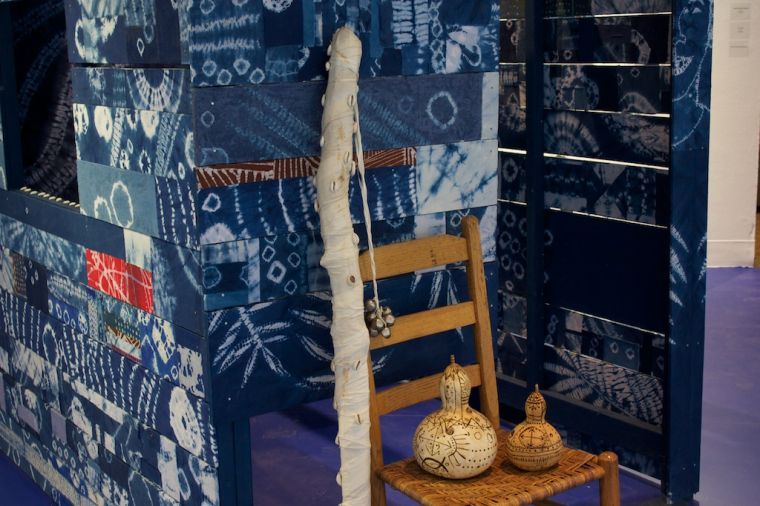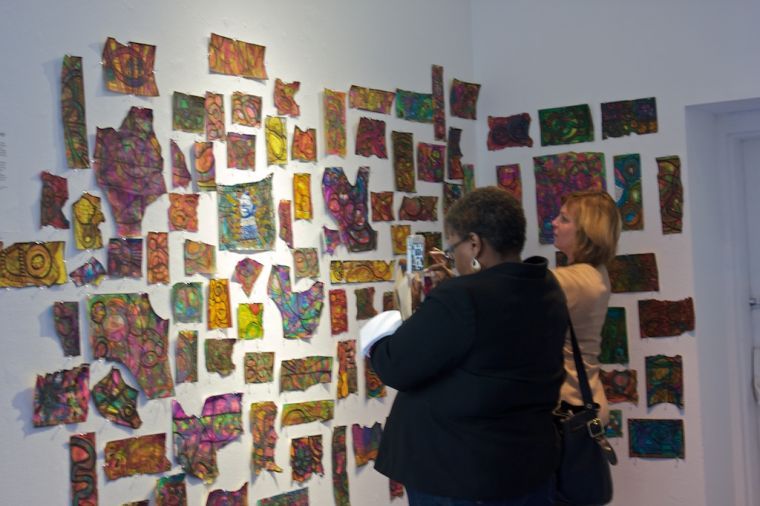“It’s been a long, long time coming, but I know a change is gonna come,” sang Sam Cooke, a singer during the 1950s. Ife Franklin, a local artist, came to the University of Massachusetts Boston on Feb. 27 to talk about her recent exhibit, “The Indigo Project,” that is currently on display in the Harbor Gallery.
Franklin hopes that her project reflects the change that Sam Cooke sang about in the ’50s. “The Indigo Project” is Franklin’s tribute to her ancestors. It is her way of thanking them for all the blood and sweat they shed in order for her to be the woman she is today.
Franklin often calls “The Indigo Project” a community project because the purpose of the collection is to bring people together, not only to remember the history of slavery, but to remember American history. Within the art exhibit, Franklin includes a slave cabin on a smaller scale, which she considers her favorite piece of her project.
“I feel like Beyonce — you know when she gets that look in her face, it’s over,” said Franklin with a little laugh. ”That’s what the cabin is. It’s such a reflection of my hard work and my dreams and what [the] ancestors want.”
At the art-talk, Franklin spoke about when she was a little girl. She had the same dream for about four years, only on the night before her birthday. In her dream, from what she can remember, she could see people staked up in front her, and she would use their hands to climb to the top. Once she got there, her ancestors told her about “The Indigo Project;” they told her how to do it and that she will not be able to do it alone. Since that dream, she has been working toward “The Indigo Project.”
For about 10 years she has been working on this project, one work of art at a time. She had a friend help build the cabin, along with kids from an afterschool program who helped dye the fabric. Many people told Franklin that she should give up because for years no gallery wanted to show her work, but she never gave up. She continued to make the project bigger until she was given the opportunity to display her project.
“If your ancestors spoke to you to present this work, then they have spoken well, and you have listened quite attentively,” said Dr. Odida, a Nigerian art historian. “What is most significant of your work is your appeal to [the] conscious of the people.”
“The Indigo Project” is not just an art exhibit for the African-American community — it is an art exhibit for everyone. Franklin wants people to walk away knowing that the history of enslavement is not just African-American history — it is American History.
Ife Franklin talks art, ancestors, and American history
By Ricki Faust
|
March 1, 2014
'The Indigo Project'


